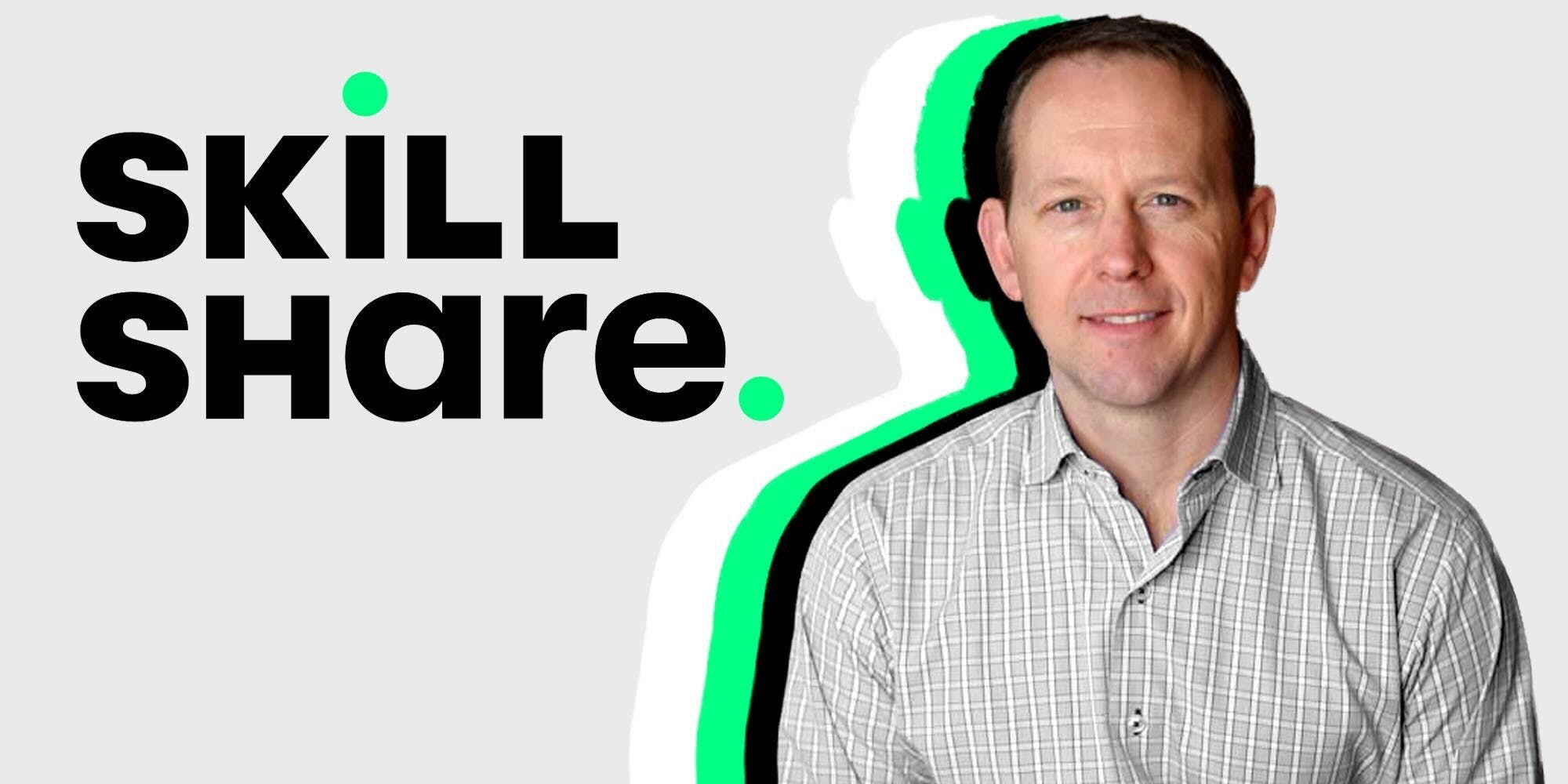
We’re sitting down with leaders on the business side of the creator economy to get their best advice for creators looking to launch and develop their careers.
This week, we spoke with CEO of Skillshare Matt Cooper about how the startup nest of Silicon Valley has helped him to grow a bustling ecosystem of online learning, and what advice he has for creators who want to join in.
Skillshare is an online learning company that operates on a marketplace model. Users pay a flat rate to access unlimited Skillshare courses, and teachers sign up to create course content. Teachers then earn money from membership referrals and royalties depending on how many minutes their videos are watched.
Online learning as an industry grew during the pandemic as people searched for remote avenues of personal growth and creativity. In 2020, Skillshare announced a pivot toward creators and raised $66 million dollars in capital.
“Particularly times like COVID, a lot of the other things that teachers were dabbling in dried up. We were able to provide them a consistent source of income to continue chasing their dreams, passions, and interests,” Cooper told the Daily Dot.
Cooper spearheaded Skillshare’s change in strategy, and has been CEO since 2017. In a former life, Cooper said he was an investment banker unsatisfied with years of 80-hour workweeks at JP Morgan. He quit his job, and found himself unemployed in Silicon Valley in the early 2000s. The unemployed Cooper hustled to get some consulting work, and through consulting became infatuated with the world of startups. Despite some ups and downs during the financial crisis in 2008, Cooper said he eventually landed in executive roles at Upwork and Visually.
Cooper said he took lessons learned in the startup world to Skillshare. In particular, he learned to be deliberate in communicating where the company is going and why: “A CEO at my first startup used to say, ‘If people aren’t making fun of you behind your back, you haven’t said enough.’”
Now five years into his tenure at Skillshare, he’s come to understand why certain creators are more successful on the platform than others.
“There’s always this balancing act between being broad enough to attract a significant audience but narrow enough to be differentiated,” Cooper said, “The teachers who are most successful on Skillshare, yes of course they’re experts and really good at what they do, but they also know how to package it and communicate it in a way that’s really valuable to the student.”
Nathaniel Drew, a creator with over 1.5 million subscribers on YouTube and over 14,000 followers on Skillshare, echoed Cooper’s thoughts on how to be a successful teacher.
“Make sure you’re talking about the things that you feel comfortable talking about… And be really transparent when you even remotely touch any territory you’re not as well versed in so that it’s an authentic interaction with anybody that’s watching.”
Drew continued, “If you’re talking about something that you genuinely care about, the energy comes. You’re also a host. It’s not just delivering the information, it’s delivering the information in a way that’s engaging for people.”
Drew said he had never taught courses before he joined Skillshare: “It was a first experience with courses for me. To think about delivering a message over the course of an hour instead of 10 minutes is quite nice.”
While Drew said there were many reasons he chose Skillshare over other course-selling platforms, he emphasized the usefulness of having an existing user base on the platform: “It successfully built its own ecosystem. I’ve got messages from people saying they’ve discovered me through Skillshare and ended up checking up my channel that way.”
Cooper agreed that the marketplace model of Skillshare allows creators to raise awareness about their content.
“I think on the student side, the subscription nature of the platform really allows students to explore, try new things, test things,” Cooper continued, “For the teacher, it allows people to discover you and your content in a way they maybe wouldn’t on other platforms.”
Cooper also argued that Skillshare’s teacher income model—teachers earning money through referrals and royalties— is beneficial for creators: “Our teacher churn rate is almost zero… We just don’t see any of our significant teachers leave because it just becomes this ongoing revenue stream.”
Drew agreed, and said that the monetization model on Skillshare works for him in tandem with the money he makes from YouTube: “A big motivator was to create ways to make money that isn’t entirely dependent on very volatile AdSense and sponsors.”
In an industry where careers are short and trends come and go, Drew said he prioritizes the long-game.
“It’s so easy to get swept up in the insane amount of content, how fast-moving things are, and how competitive the space can be,” Drew said, “But I think the more I can pause, reset, and reflect—and not get so caught in that machine —the better I can stay connected to why I create.”
Cooper also advised fellow entrepreneurs working in the creator economy to reflect and focus: “What are you truly unique at, and how does that line up with what your audience and target market wants and needs? It’s the classic product-market fit.”
Cooper said the same advice applies to creators: “Everytime you launch a new class, you’re basically trying to establish product-market fit for that new class. And so whether it’s a class, or a newsletter, or a live session, I think creators should take some time to think through whether or not they have a product-market fit for that particular thing.”
Cooper continued, “It’s something that the stereotypical Silicon Valley entrepreneur is well-versed in. All of the startup ecosystem talks about it constantly, but I don’t know if that mindset has necessarily made it into the creator economy.”
Are you a business leader working in the creator economy? Email grace.stanley@clarion1822.com for a chance to be featured in an upcoming newsletter.




